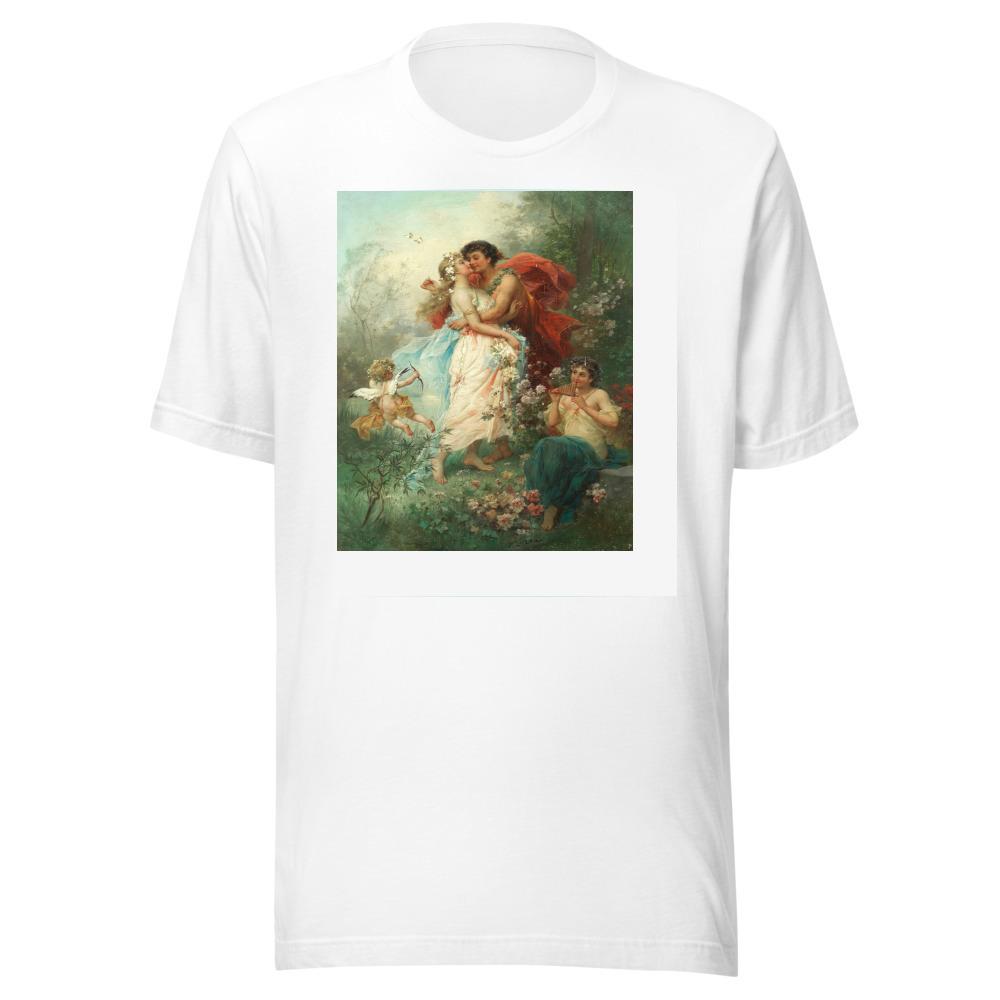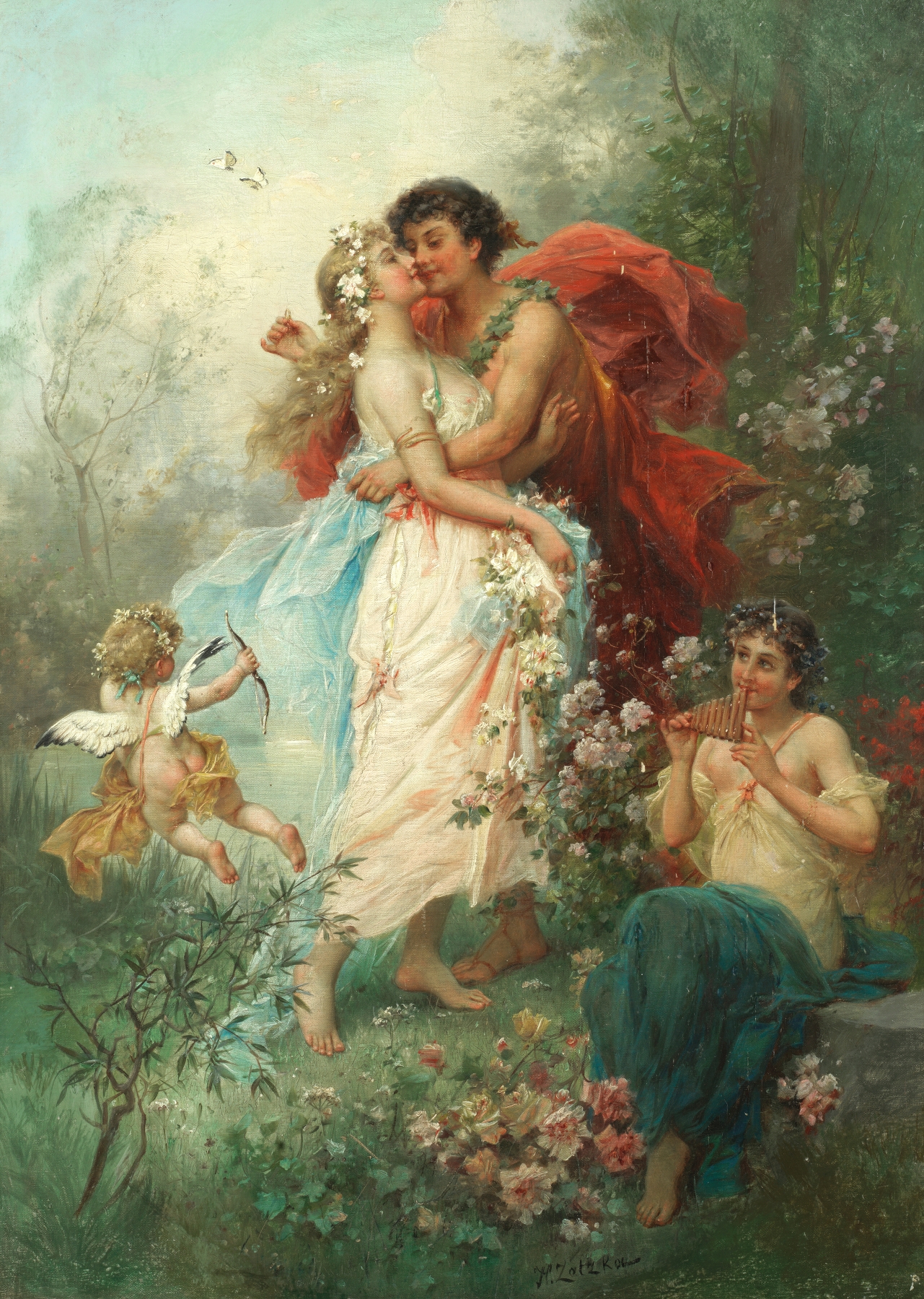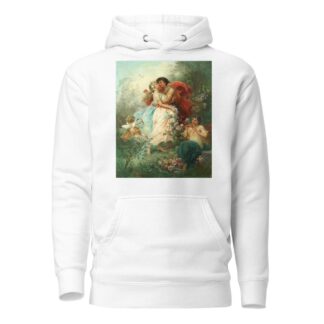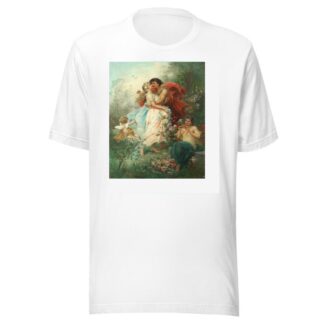Description
Oath of love by Hans Zatzka printed on a T-Shirt
About the T-Shirt
Regular fit
Standard length, the fabric easily gives into movement
Casual wear
A classic, everyday option loved by our customers
Side-seamed
Constructed by sewing two parts together, creating a fitted look
The Unisex Staple T-Shirt feels soft and light with just the right amount of stretch. It’s comfortable and flattering for all. We can’t compliment this shirt enough–it’s one of our crowd favorites, and it’s sure to be your next favorite too!
- Solid colors are 100% Airlume combed and ring-spun cotton
- Ash color is 99% combed and ring-spun cotton, 1% polyester
- Heather colors are 52% combed and ring-spun cotton, 48% polyester
- Athletic and Black Heather are 90% combed and ring-spun cotton, 10% polyester
- Heather Prism colors are 99% combed and ring-spun cotton, 1% polyester
- Fabric weight: 4.2 oz./yd.² (142 g/m²)
- Pre-shrunk fabric
- 30 singles
- Side-seamed construction
- Tear-away label
- Shoulder-to-shoulder taping
- Blank product sourced from Nicaragua, Mexico, Honduras, or the US
Hans Zatzka (1859 – 1945)
Hans Zatzka was an Austrian Academic and fantasy painter. He has sometimes been known as P. Ronsard, Pierre de Ronsard, or H. Zabateri, and signed many of his works as Joseph Bernard, J. Bernard, or Bernard Zatzka. The purpose of Zatzka’s vast array of pseudonyms was to avoid penalties of breaking contracts which limited the amount of artwork he could sell. This has caused some art databases to conflate Zatzka’s work under the pseudonym Joseph Bernard with the French sculptor with the same name.
Hans Zatzka was born on 8 March 1859 in Vienna. His father Bartholomaüs was a construction worker, and his mother was Marie Karpischek Zatzka. Between 1877 and 1882, he studied at the Academie des Beaux-Arts, under Christian Griepenkerl, Carl Wurzinger, and Karl von Blaas. Zatzka was able to earn a living through the production of frescoes for churches and other institutions.
In 1885, Zatzka was commissioned to create the ceiling fresco The Naiad of Baden at Kurhaus Baden.
Many of Zatzka’s works were religious paintings and altar pieces dedicated to various churches in Austria. However, he is more known for his paintings of women, fairies, and other fantastical scenes. Often, he would draw inspiration from the works of Richard Wagner and the fairy tales of the Brothers Grimm.
In the late 19th and early 20th century, several pieces by Zatzka were photographed and made into commercial and collectable postcards.
During the 1920s, Zatzka’s style became the decor of choice throughout Europe. In addition, the previous thirty years held a resurgence for Zatzka.





Reviews
There are no reviews yet.